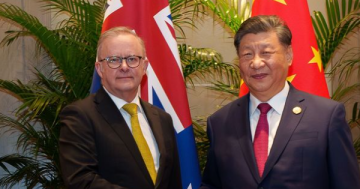Rick Zedník* says that when it comes to gender equality, men are part of the problem, but also part of the solution, so it is crucial to find ways to engage them in the push for change.

Photo: Ministry of the President, Government of Spain
Earlier this year, Mexico’s leftist President-elect, Andrés Manuel López Obrador and Colombia’s new rightist President, Iván Duque each announced that his cabinet will be gender balanced.
This came a month after new Spanish Prime Minister, Pedro Sánchez (pictured) filled nearly two-thirds of his cabinet positions with women.
These men setting new standards for promoting female political leaders are vital complements to the breakthroughs women politicians themselves are achieving around the world.
But if we are ever to reach true gender equality in politics, we need many more men to join the cause.
Not long ago, I was invited to speak on a panel about women in the political process.
The session moderator gave the floor to a diverse range of voices — public officials and private citizens, young and old, from a variety of countries, speaking in several languages.
Of the two dozen contributors to the discussion, mine was the only male voice.
Even though the organisers invited many men, few showed up and none raised their hand to speak.
The question came up there and in many other forums on gender equality that I’ve attended recently: “How can we involve men?”
It’s a simple enough question, if it didn’t refer to three billion people walking this planet.
Men’s perspectives on this topic are as varied as are their tastes in neck ties.
They occupy all parts of the spectrum from medieval misogynists to fully fledged feminists.
It is folly to expect them all to be comfortable attending — let alone speaking up at — discussions of gender parity.
Involving them in the drive for equality demands a more nuanced approach.
Let’s think of men based on their receptiveness to feminism.
Do they fear it as an approaching tsunami, about to wipe out life as they know it?
Or do they actively encourage it as a rising tide promising to lift all boats, including their own?
To know how to involve men, let’s consider them in five broad segments, from fem-phobic to fem-fostering.
The Opponents
An important minority of males view feminism as an oncoming flood.
These land-lovers see demons in the seas.
For protection from the existential threat about to turn everything upside down, they seek refuge in the hills.
When the waters wash at their threshold, they react defensively, barricading the door, or worse.
This is not irrational, but it is not constructive.
These men quietly believe, and occasionally say, “Women are fundamentally ill-suited for leadership.”
And that’s when they’re being polite.
These staunch opponents of recognising equality between men and women will not be convinced otherwise.
But nor should they be ignored.
Keep exposing them to the message that times change and we humans adapt.
We have evolved in innumerable ways over the millennia.
Isn’t that worth talking about?
The Sceptics
Very happy with life in the land of status quo, these men might be coaxed into an occasional cruise on the water.
But don’t rush them.
Start by exploring the tranquillity of Parity Pond before venturing through Sisterhood Straits to the openness of Liberation Lake.
These men are tolerant of different views, but have developed opinions about unintended consequences of gender equality.
“It’s expensive for business,” is a common refrain.
Another is, “Aren’t we already beyond these identity politics?”
So rather than rock the boat, invite them to read, to listen, and even share their own thoughts.
It starts privately at family meals, in conversations with their mothers and fathers, their sisters and brothers, their daughters and sons.
Then they can take discreet steps, such as voting for qualified women candidates, or donating to organisations that support the empowerment of women and girls.
The Uncommitted
These men are open-minded and willing to dip their toe in the water, but usually only briefly.
They have not yet decided to commit.
But they are at a tipping point.
You may hear them say, “Of course, women deserve opportunities equal to those benefiting men.”
They may even concede that “women have historically faced greater hurdles than men, and this should change.”
This signals they can be persuaded to move their support from passive to active.
Perhaps they’re ready to “Like” social media posts that promote equality or to “Follow” organisations or people who frequently address the topic on social media.
The Supporters
Happy to dive in the waves on occasion, these men are comfortable investing time for the cause.
Their lives probably already represent a shift from traditional gender roles, at home, at work, or in their leisure time.
They’re at ease commenting on social media or throwing around the hashtag #HeForShe.
I’m seeing growing numbers of such men quietly attending meetings and rallies, but they don’t speak up.
These men are ripe to be persuaded to add their voice to the growing chorus.
Ask them to volunteer on a female candidate’s political campaign.
It is from today’s supporters that tomorrow’s champions will emerge.
The Champions
These men are lifeguards at Feminista Beach.
They’re not just convinced, they’re trying to convince others, either through word or deed.
They already walk the walk, actively promoting equality in their free time or professionally, being more conscious in hiring, or encouraging empowerment groups and participating where appropriate.
Identify these men and invite them to join in leading the discussion.
Their example will signal to other men that everyone has something to gain from equality.
The proportion of men in each category varies tremendously by geography and generation.
There is not one boat suitable for all men’s oars in the push for equality.
But once you’ve sized them up, you may be surprised by how even small prompts can get them rowing in the same direction.
* Rick Zedník is CEO of the Women Political Leaders Global Forum.
This article first appeared at www.linkedin.com.









